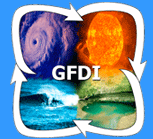   
|
How to teach Oceanographic in German?
Posted on 15 April 2024
|
|
How do you teach a foreign language to both your students and yourself?
Teaching a foreign language, even one foreign to students and myself has been a significant part of my experience as an online tutor. Most of my teaching has been conducted in English, catering primarily to non-native English speakers, with the occasional native speaker in the mix. It's fascinating to observe how certain concepts, which may be household terms in one language, can be completely foreign in another.
For instance, concepts like "density" may be described by technical terms in German or Norwegian but are intuitive in English. In German, terms like "Dichte" or "tetthet" aren't commonly used in everyday language and require explanation, especially in subjects like oceanography. To help students grasp the concept, I often demonstrate density through experiments, such as how soda cans with the same volume can sink or float depending on their contents.
However, in English, the understanding of density is more intuitive—it's simply a measure of compactness. For example, a densely populated area has many people living close together, while a dense lecture contains much content for the time allotted. With this background knowledge, discussing the density of water becomes much more accessible.
An online German tutor can be crucial in helping students understand oceanographic topics, even if the tutor is not a specialist in the field. By providing language support and clarification in German, the tutor can assist students in comprehending technical terms and concepts that may be challenging to grasp in a foreign language. Additionally, the tutor can offer explanations tailored to the student's level of proficiency, breaking down complex topics into more digestible segments and facilitating discussions to reinforce understanding. Through personalized guidance and encouragement, an online German tutor can empower students to engage confidently with oceanographic material and achieve academic success.
How can lessons in a foreign language be less frightening for students?
Making lectures in a foreign language less intimidating for students can be a challenge. One strategy I've found effective is to speak to them in my less-than-perfect German. Seeing the teacher make mistakes in a foreign language helps students feel more comfortable making their own mistakes. However, despite this effort, students often choose to write exams in German, leading to difficulties as they may need to learn the technical terms in German or invent or mix them up with similar-sounding but unrelated terms.
Navigating the complexities of teaching a foreign language requires patience, creativity, and understanding. By employing strategies to make concepts accessible and creating a supportive learning environment, students and teachers can overcome language barriers and succeed in their educational endeavors.
Oceanography terms: English-Deutsch
- Absolute vorticity - absolute Vorticity (f)
- Advection - Advektion (f)
- Acceleration - Beschleunigung (f)
- Work - Arbeit (f)
- the Atlantic Ocean - Atlantischer Ozean (m)
- Deflection - Beugung (f)
- Runoff - Ablauf (m)
- Deposition - Ablagerung (f)
- Discrepancy - Abweichung (f)
- Trajectory - Bahn (f)
- Constituent - Bestandteil (m)
- Mobility - Beweglichkeit (f)
- Cohesion - Cohäsion (f)
- Latitude - Breitengrad (m)
|

